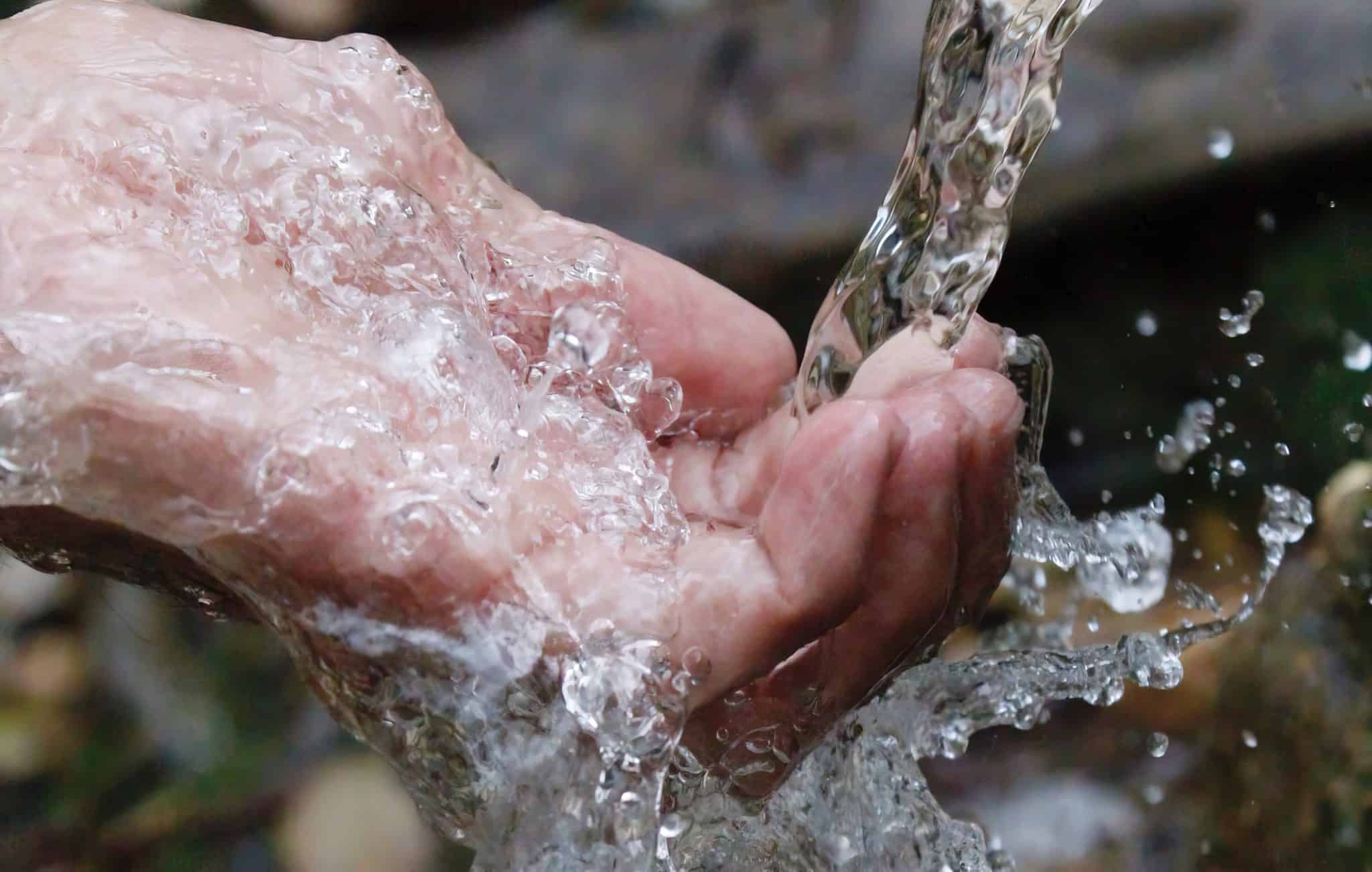What does God’s living water mean for us?
Salt&Light marks Singapore World Water Day today (March 22) with a look at passages on water in the Bible.
Dr Ang Chin Sim // March 22, 2023, 5:41 pm

Water is mentioned 722 times in the Bible, even more than faith, hope, prayer and worship! What is its significance for believers? Photo by Samad Deldar on Pexels.
Ever gone on a long hike or activity that made you extremely thirsty? If you didn’t have any water at hand, the most precious thing that your body would have craved would be water!
Water is vital to humankind. About 71% of the earth’s surface is covered by water and the oceans hold about 96.5% of the earth’s water. Other areas that contain water include water vapour in the air, lakes, rivers, icecaps, glaciers, soil moisture and aquifers.
Up to 60% of our human bodies consists of water. We can’t survive for long without water. It is a vital nutrient for every cell, regulates our internal body temperature, flushes out waste and provides lubrication.
This year, World Water Day is on March 22. The significance of water in the Bible is noteworthy; it is mentioned 722 times, even more than faith, hope, prayer and worship!
It is worth taking a voyage through water passages in the Bible for aqueous sightings.
Parting of seas
Genesis 1:6 describes how God said: “Let there be a firmament in the midst of the waters, and let it divide the waters from the waters.”
God parted the waters in the beginning of Creation. The waters above the firmament likely constituted a vast blanket of water vapour resulting in a global greenhouse that resulted in a pleasant temperature around the world. There was no need for rain as the vapour would feed the vegetation by a rich evaporation and condensation cycle. It would also filter out ultraviolet radiation which we now know makes us prone to skin cancers, ageing and cataracts.
Our Creator created a well planned atmosphere at the very beginning.
Other well known water partings include the parting of the Red Sea and the River Jordan.
God in ancient times provided the way for the Israelites through the waters and today He is still our ever-present help.
Fleeing from slavery in Egypt, the Israelites were caught between the Red Sea and the pursuing Egyptian army. God provided the escape route. He parted the sea forming seawalls on the right and the left, so that the Israelites could pass on dry land. Amazingly, even the ground was dry! (Exodus 14:22)
If the sea had been parted but the ground remained wet and gummy, it would have been difficult to walk on without getting sucked into the mud. In a perfectly executed move, the pillar of cloud that had guided them during the day moved from the front to the back to block the Egyptians off until the last of the Israelites were safely on the other side. Later the sea reverted to its original place and drowned the Egyptian army pursuing the Israelites.
Exodus 14:14: “The LORD will fight for you; you need only to be still.”
In the crossing of the Jordan River, God dammed up the rushing flow of the river, so that the Israelites could safely enter the Promised Land. It was also done with precise timing. When the feet of the priests who were carrying the Ark of the Covenant dipped into the water of the River Jordan, then the river flow dammed up in a heap at a place very far away. It can be said that God took them out of Egypt’s bondage with a miracle, and He brought them into the Promised Land with a miracle.
We all go through troubled times, and there are instances when we can feel that we are drowning. This reminds me of a song by Charles F Brown: “When I think I’m going under, part the waters Lord. When I feel the waves around me, calm the sea. When I cry for help, oh hear me Lord and hold out your hand. Touch my life, still the raging storm in me.”
These words resonate with us in times of trouble. God in ancient times provided the way for the Israelites through the waters and today He is still our ever-present help through times of trouble. When we pass through the waters, we can be reassured that He has redeemed us, He has called us by name and whatever the circumstances, He will be with us through all these events.
Isaiah 43:1-2: “But now thus says the LORD, he who created you, O Jacob, he who formed you, O Israel: Fear not, for I have redeemed you; I have called you by name, you are mine. When you pass through the waters, I will be with you; and through the rivers, they shall not overwhelm you; when you walk through fire you shall not be burned, and the flame shall not consume you.”
Overflowing provision
Around 60% of our body is made up of water and we can only live three to five days without fluids. The Israelites wandered in the desert for 40 years, and any water provisions they would have taken from their escape from Egypt would have run out within days.
Accounts of God’s marvellous provision include Moses striking a rock in Meribah/Massah, so that water would be brought forth. Towards the end of their wanderings, a similar situation occurred where the Israelites started complaining about the lack of water and opposed Aaron and Moses. God told them to speak to the rock to bring forth water, but Moses struck it instead. While water still gushed out, Moses was denied entry into the Promised Land as a consequence of not obeying God’s instructions.
God’s provision of water and food for the Israelites is a pre-figuring of the spiritual food and drink we shall receive at the Lord’s table
The Apostle Paul in his letter to the Corinthians, recounts the experience Israel went through in the desert.
I Corinthians 10:4: “Moreover, brethren, I do not want you to be unaware that all our fathers were under the cloud, all passed through the sea, all were baptized into Moses in the cloud and in the sea, all ate the same spiritual food, and all drank the same spiritual drink. For they drank of that spiritual Rock that followed them, and that Rock was Christ. But with most of them God was not well pleased, for their bodies were scattered in the wilderness.”
The Israelites were sustained by God’s love and miraculous provision of food and drink during their time in the wilderness (Exodus 16:35 and 17:6). This is a pre-figuring of the spiritual food and drink we shall receive at the Lord’s table (1 Corinthians 11:23-26).
Israel had the spiritual presence of Jesus Christ following them through the wilderness, however they didn’t seem grateful and, consequently, most of the original group died in the wilderness with only two entering the Promised land.
This serves as a stern warning for us. We may be blessed by provision from God, but if we are not pleasing Him by living in obedience, we too can suffer the consequences of sin and disobedience.
Living water
There are three principal Jewish feasts: Passover, Pentecost, and Booths or Tabernacles.
According to Josephus the historian, the Feast of Booths was the most popular among the three. This was associated with the ingathering of the harvest of grapes and olives and went for seven days from the 15th to 21st of Tishri (September/October). People living in rural areas would make temporary structures of light branches and leaves to live in for one week, hence the name “booths” or “tabernacles”.
“If anyone thirsts, let him come to me and drink. Whoever believes in me, as Scripture has said, ‘Out of his heart will flow rivers of living water’.”
Meanwhile, town dwellers would put up similar structures on their flat roofs or courtyards. There was also water-drawing and lamp lighting rites to which Jesus makes reference (“If anyone thirsts, let him come to me and drink” John 7:37-38, and “I am the light of the world” John 8:12.)
Following tradition, during the seven days of the Feast of Booths/Tabernacles, a golden container filled with water from the pool of Siloam was carried by the high priest in a procession back to the temple to remind Israel of how God provided for them in the wilderness.
As the procession approached the Water Gate on the south side of the inner temple court, there would be three trumpet blasts marking the joy of the occasion, while Isaiah 12:3 was recited: “With joy you will draw water from the wells of salvation.”
The priests would march around the altar with the water container while the temple choir sang the Hallel (Psalm 113-118). The water was offered as sacrifice, symbolic of the blessing of the rainfall for crops.
On the last day of the feast, Jesus stood up and cried out: “If anyone thirsts, let him come to me and drink. Whoever believes in me, as Scripture has said ‘Out of his heart will flow rivers of living water’.” (John 7:37-38) This echoes the words of Isaiah 55:1: “ Come, everyone who thirsts, come to the waters; and he who has no money, come buy and eat! Come, buy wine and milk without money and without price”.
You’re invited to quench your thirst
Thirst … Come … Drink. These words are the Gospel invitation.
We are not only passive vessels that contain the Holy Spirit but our lives can experience the outpouring of this power.
Thirst is a need. Once thirst is recognised, then one seeks the source of provision, and receives what is needed. The person who feels the lack will crave the Source of Salvation and drink, receiving the Saviour.
The water pouring rite is a foreshadowing of the rivers of living water foreseen in Ezekiel 47:1-9 and Zechariah 13:1.
Jesus is the fulfilment of the Feast of Booths/Tabernacles, He is the One who provides the living water that quenches the spiritual thirst of mankind, giving eternal life.
When we receive Jesus’ gift of eternal life, the Holy Spirit comes to dwell in us. We are not only passive vessels that contain the Holy Spirit but our lives can experience the outpouring of this power and fulfil what Jesus said: “Out of his heart will flow rivers of living water.”
So instead of being just a passive vessel, we bubble and overflow with power.
Not only do we experience the peace that the Spirit gives but we have the ability to refresh and witness to others too. Not only do we receive blessings, we also become a source of blessing to others as well!
RELATED STORIES:
Breaking the silence: A foreign domestic worker and rape survivor’s story of healing
We are an independent, non-profit organisation that relies on the generosity of our readers, such as yourself, to continue serving the kingdom. Every dollar donated goes directly back into our editorial coverage.
Would you consider partnering with us in our kingdom work by supporting us financially, either as a one-off donation, or a recurring pledge?
Support Salt&Light




